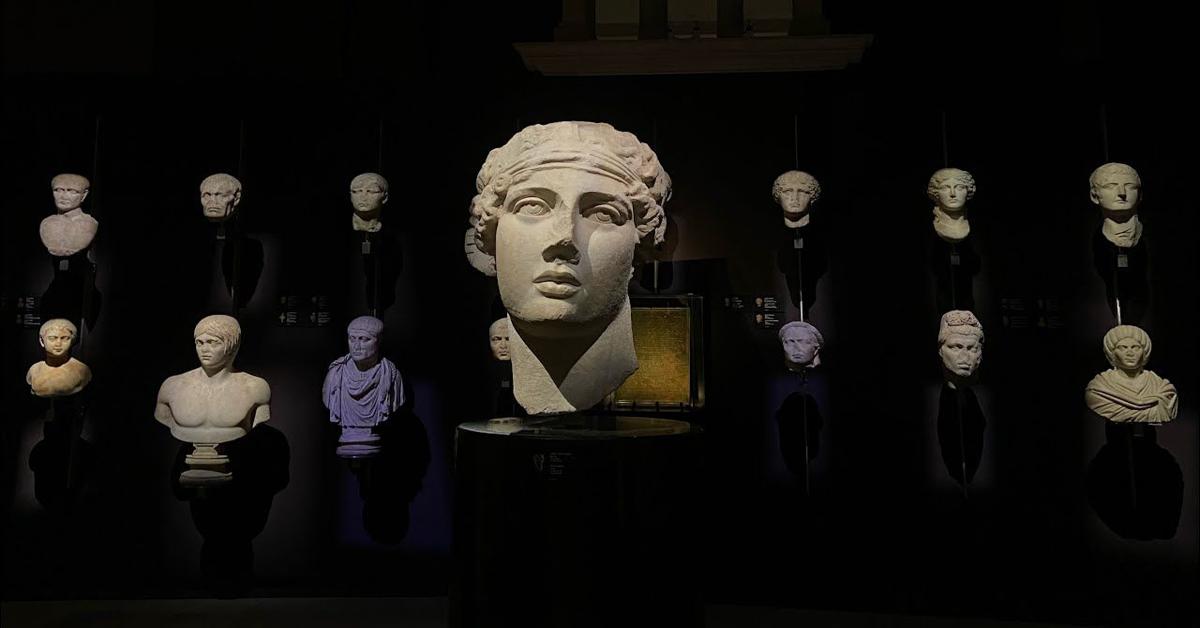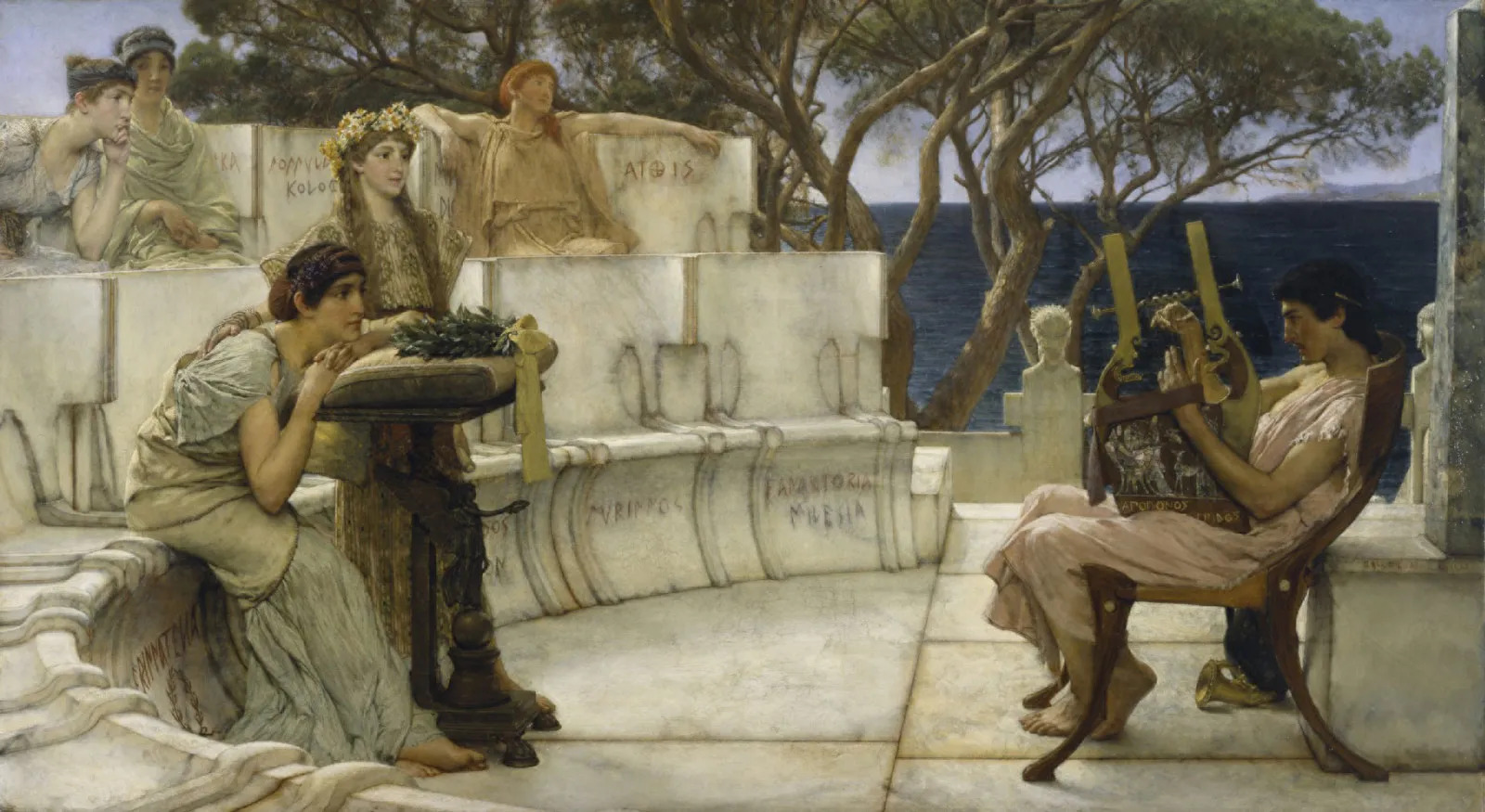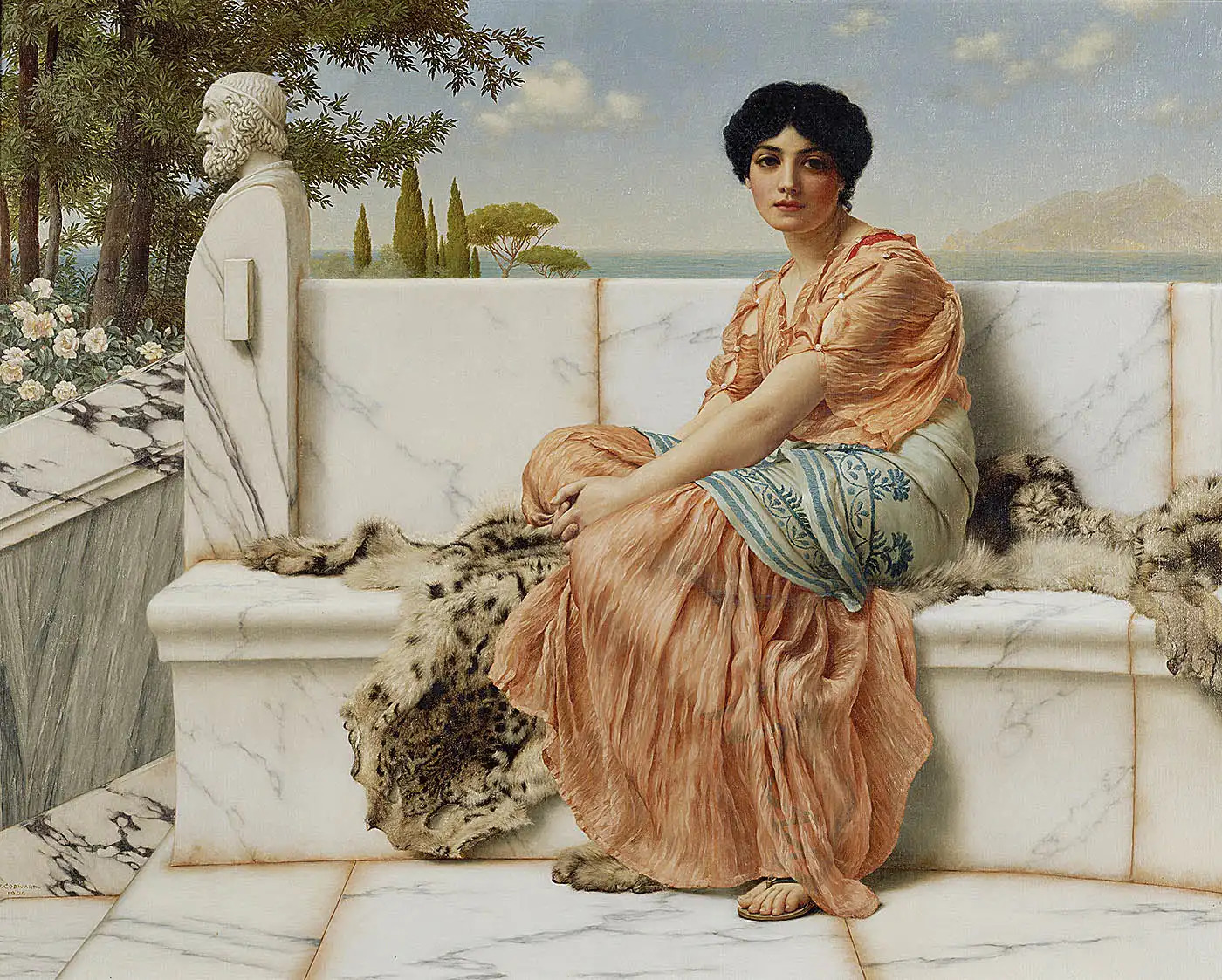
It is thought that she had many siblings and was married to a rich man named Cercylas. And, of course, as we know from her poetry, she had a daughter named Cleis. She spent most of her life in Lesbos, where she ran a school for unmarried young women. Thus Sappho gained a great reputation as a teacher and poet.

She was well-known in society due to her school for young women, where she taught young women the art of social relations, cultural awareness, deportment, and refined movement Sappho, the first known female poet in history, devoted herself to poetry after her parents' deaths and laid the foundation for lyric poetry, especially poems about love. Her poems were praised even by great masters such as Horace and Plato. Although her surviving poems are only fragments, she is still famous for her only known complete poem.

Composed in the lyrical Aeolian dialect, a tongue largely forgotten by the Roman era, Sappho's poems saw limited study during the Byzantine period. The disappearance of her poems from the academic world resulted in fewer of them being produced by scribes, which explains the scarcity of her surviving works. Today, we can only piece together fragments of her poetry, relying on educated guesses to fill the gaps. In 1073, during the reign of Pope Gregory VIII, many of her poems were condemned and burned in Constantinople. After Sappho's death, the language in which she wrote her poems became obsolete, so fewer people reproduced and read her writings. Some of her works were found by chance in a destroyed church in the Egyptian city of Faiyum, and others were discovered among rotten papyrus pages in the Nile Valley.

Her observations of particular settings and her travels suggest that Sappho came from an aristocratic family. It is known that she was forced to leave Lesbos during the revolt led by Pitakos and was exiled to Sicily. Because her fame was so widespread during her time, the people of Sicily rejoiced at Sappho's arrival and erected a statue in her honor. A legend tells of Sappho taking her own life by leaping from a mountain, heartbroken by a boatman named Phaon. Her death is generally believed to have occurred around 570 B.C. “Someone will remember us I say Even in another time” -Sappho